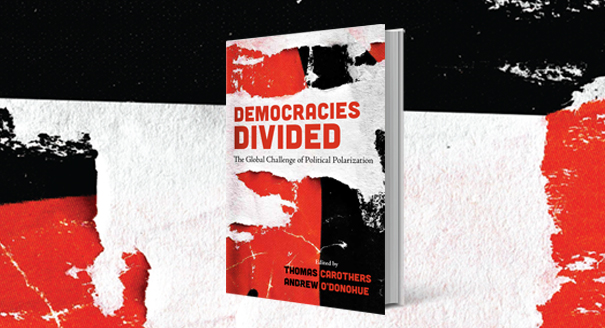Registration
You will receive an email confirming your registration.
Political polarization is tearing at the seams of democracies around the world, from Bangladesh, Brazil, and India, to Poland, Turkey, and the United States. Why is polarization coming to a boil in so many different places at once? Is polarization similar everywhere or marked by substantial differences? How can severely divided democracies restore at least some national political consensus? Are there relevant lessons for the United States from polarized democracies elsewhere? Thomas Carothers will address these questions, drawing on the new book he has co-edited with Andrew O’Donohue, Democracies Divided: The Global Challenge of Political Polarization. Anne Applebaum, Naomi Hossain, and Sarah Yerkes will provide in-depth perspectives on key country cases.
Thomas Carothers
Thomas Carothers is senior vice president for studies at the Carnegie Endowment for International Peace. In that capacity he oversees all of the research programs at Carnegie. He also directs the Democracy, Conflict, and Governance Program and carries out research and writing on democracy-related issues.
Anne Applebaum
Anne Applebaum is a columnist for the Washington Post and a Pulitzer-prize winning historian. She is also a senior fellow at the Stavros Niarchos Foundation Agora Institute at Johns Hopkins University.
Naomi Hossain
Naomi Hossain is a political sociologist at the Institute of Development Studies, Sussex, currently based at the Accountability Research Center at American University. She is the author of The Aid Lab: Understanding Bangladesh’s Unexpected Success.
Sarah Yerkes
Sarah Yerkes is a fellow in Carnegie’s Middle East Program, where her research focuses on Tunisia’s political, economic, and security developments as well as state-society relations in the Middle East and North Africa.
Carlos Lozada
Carlos Lozada is the nonfiction book critic of the Washington Post and a Carnegie Endowment visiting scholar. He is also an adjunct professor of political journalism with the University of Notre Dame’s Washington program.
Democracies Divided books will be sold at a special discount price.
